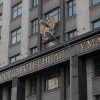 Humza Yousaf's government was urged to «take a different look at how and what services they provide.» Photo: Jane Barlow/PA
Humza Yousaf's government was urged to «take a different look at how and what services they provide.» Photo: Jane Barlow/PA
SNP ministers should cap spending, not hit Scots with more tax hikes to close a £1bn financial black hole in their budget, retailers said.
The Scottish Retail Consortium (SRC) said that Humza Yousaf's government should take a «leaner approach» with a «candid analysis of spending» and «a different take on how and what services they provide.»
In submission To the Finance Committee of Holyrood, the trade body also urged ministers to cut government spending through measures such as selling buildings, forced layoffs and reducing the number of kwang.
The SRC warned that it was relying on «unhindered» tax increases to offset the shortfall, which could further hit household disposable income amid a cost-of-living crisis, causing consumer spending to fall.
This could hurt Scotland's «already lackluster» economic recovery and growth, the submission said, urging the SNP to focus instead on putting public finances «on a sustainable path».
The intervention came just days after Mr. Yousaf admitted that his political plans would annoy some people. He previously hinted at plans to increase income tax next year for those with higher incomes.
The First Minister and Scottish Councils have also unveiled proposals to raise council tax to 22.5% on large houses. , in addition to the usual annual growth.
Other measures under development that the SRC pointed to included on-site parking fees, a visitor tax, fees for disposable coffee cups, bottles and beverage cans, and an increase in the municipal tax on second homes.
Growth in Scotland's Higher Tax Group will add £1,023 to household accountsShona Robison, Deputy First Minister, admitted in May that the Scottish government's day-to-day spending «could exceed our funding» by £1bn in 2024/25. , rising to £1.9bn in 2027/28.
In addition to inflation, she said spending on the National Health Service and Social Security, the payroll bill in the public sector and the rising bill for more generous benefits introduced by the SNP in Scotland.
David Lonsdale, director of the SRC, said there were «several viable options» to fill the financial gap and «a timely burst of economic growth» was unlikely in the short term.
He added: «However, retailers know all about having to cut back on their clothing in the face of rising costs as they have faced a tsunami of commodity price and supply chain surges over the past couple of years with various regulatory restrictions.
“It is essential that Scottish ministers succeed in reducing the cost of government, otherwise taxes on households and firms could rise, and recovery and economic growth, already sluggish, could be slowed down.”
Anyone in Scotland, earning more than £27,850, pays more income tax than if he lived south of the border. Those who earn £50,000 pay almost £1,500 extra a year.
Mr Yousaf also promised to consider introducing a new 44 per cent rate on income between £75,000 and £125,140 to generate an additional £200m a year.
However, the SRC submission warns that additional taxes alone are “not likely to be enough to cover the deficit”, and that “a frank analysis of spending and new thinking about how services are provided” is needed.
Failure to take action on public spending will mean that «pressure for even higher taxes on households and firms will increase in the coming years,» he warned.
A Scottish Government spokesman said: «We are still facing one of the the most difficult financial situations since the transfer of power, as the Covid pandemic, the war in Ukraine and high inflation put significant pressure on households, the economy and public finances.
«As stated in this medium-term financial strategy, we will do our best to what we can to keep public finances on a sustainable path.»
























































Свежие комментарии